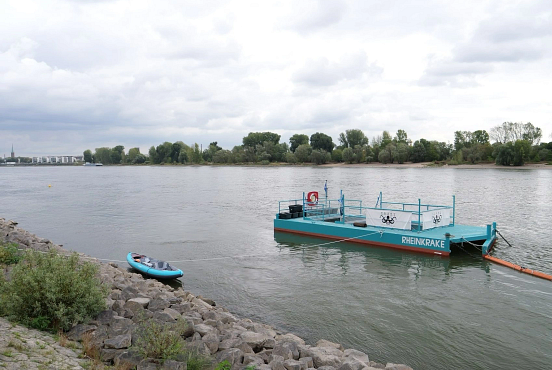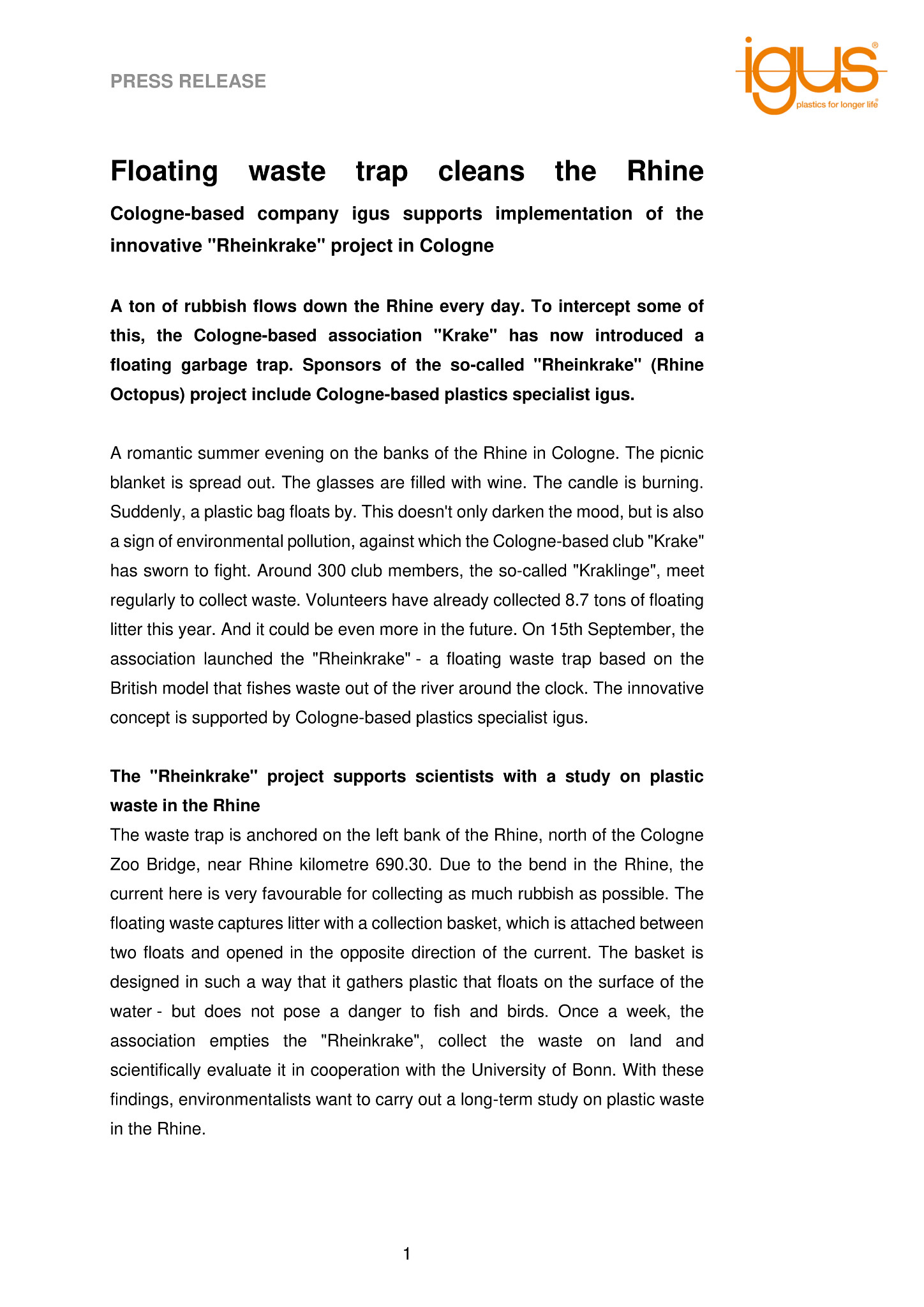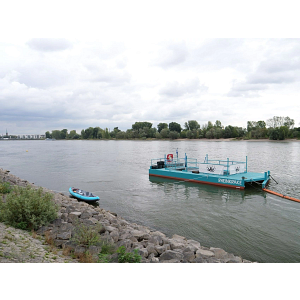Floating waste trap cleans the Rhine
Published on: 22nd September 2022
Cologne-based company igus supports implementation of the innovative “Rheinkrake” project in Cologne

A ton of rubbish flows down the Rhine every day. To intercept some of this, the Cologne-based association “Krake” has now introduced a floating garbage trap. Sponsors of the so-called “Rheinkrake” (Rhine Octopus) project include Cologne-based plastics specialist igus.
A romantic summer evening on the banks of the Rhine in Cologne. The picnic blanket is spread out. The glasses are filled with wine. The candle is burning. Suddenly, a plastic bag floats by. This doesn’t only darken the mood, but is also a sign of environmental pollution, against which the Cologne-based club “Krake” has sworn to fight. Around 300 club members, the so-called “Kraklinge”, meet regularly to collect waste. Volunteers have already collected 8.7 tons of floating litter this year. And it could be even more in the future. On 15th September, the association launched the “Rheinkrake” – a floating waste trap based on the British model that fishes waste out of the river around the clock. The innovative concept is supported by Cologne-based plastics specialist igus.
The “Rheinkrake” project supports scientists with a study on plastic waste in the Rhine
The waste trap is anchored on the left bank of the Rhine, north of the Cologne Zoo Bridge, near Rhine kilometre 690.30. Due to the bend in the Rhine, the current here is very favourable for collecting as much rubbish as possible. The floating waste captures litter with a collection basket, which is attached between two floats and opened in the opposite direction of the current. The basket is designed in such a way that it gathers plastic that floats on the surface of the water – but does not pose a danger to fish and birds. Once a week, the association empties the “Rheinkrake”, collect the waste on land and scientifically evaluate it in cooperation with the University of Bonn. With these findings, environmentalists want to carry out a long-term study on plastic waste in the Rhine.
Out of the environment, into a circular economy
The Cologne-based company igus, which develops and makes products from high-performance plastics for the industry, is one of the supporters of the project. This is due to the fact that driving a circular economy for plastics is one of the company’s declared goals. For over 50 years, igus has already turned 99% of the plastic waste generated during production to regranulate, and in 2019, the company launched their own recycling programme for used energy chains. This year, the first products were also manufactured from up to 100% recycled material. Also new: the igus:bike project for sustainable urban mobility. The concept includes a solid-plastic bicycle that is completely lubrication-free and corrosion-resistant, and whose frame and wheels can also be made from waste. With the igus:bike platform, igus also wants to share their know-how about plastics in the global bicycle industry, thus promoting the circular economy worldwide. In addition, igus has invested in recycling pioneer Mura Technology, which uses state-of-the-art technology to turn plastic waste into reusable crude oil. Plastic is thus becoming a sustainable and reusable resource. The first factory is currently being built in Teesside, England, and is due to start operations at the beginning of 2023.



